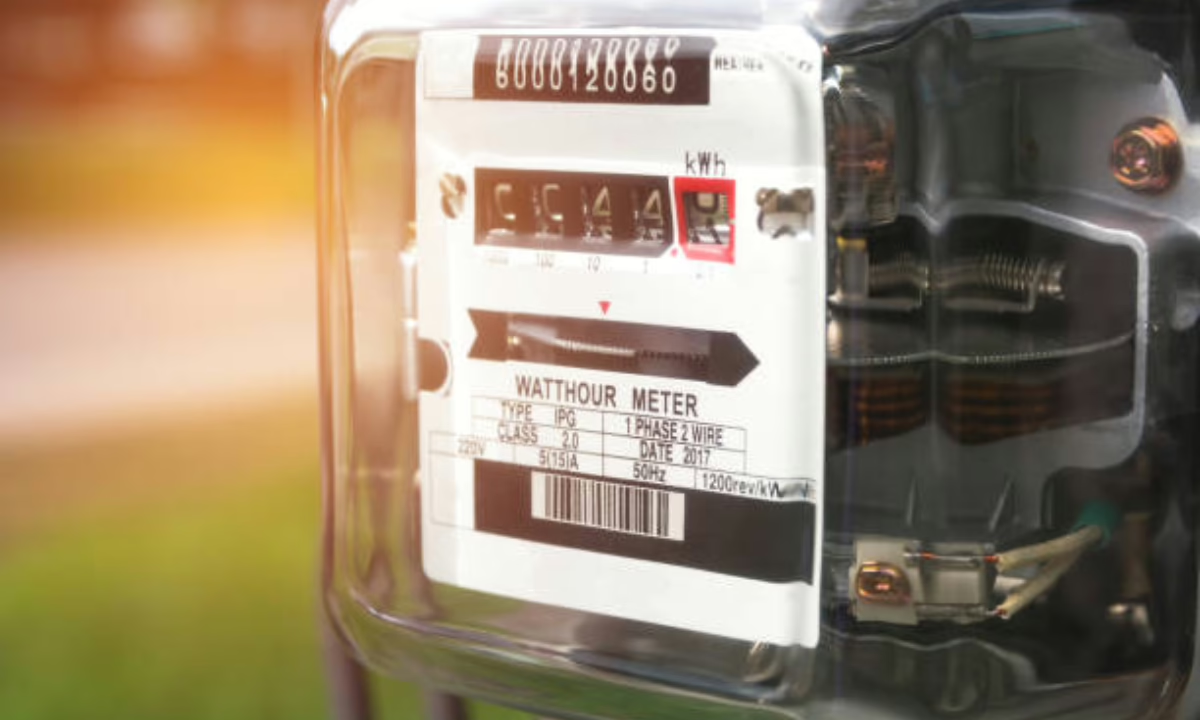The changing scenario of renewable energy, solar systems are gaining immense popularity among homeowners and companies looking to save their electricity bills and carbon footprint. Still, for proper control and monitoring of the solar energy usage, a solar meter has to be installed. The unit tracks energy generation, consumption, and export, resulting in maximum performance and accurate billing.
This guide delves into what is a solar meter, its function in a solar grid, how net metering operates, and why choosing the proper meter and distributor is essential to long-term efficiency and cost savings.
What is a Solar Meter?
A solar meter is a measurement device that is utilized to check the amount of energy produced by a solar power system. It gives real-time information on how much electricity your solar panels are producing, how much electricity is being consumed onsite, and how much electricity is being sent back onto the solar grid.
Simply put, the solar meter serves as a point of communication among the consumer, the utility provider, and the solar panel system. It promotes transparency and honesty in energy use and billing.
Why Do We Need Solar Meter?
Why do we need solar meter understanding is the basis for maximizing your solar energy usage. The advantages are:
- Accurate Measurement: Monitors solar production and usage in real time.
- Energy Optimization: Enables users to adjust energy consumption based on solar output.
- Grid Export Monitoring: Essential for understanding how much energy is being sent back to the grid.
- Billing and Net Metering: Supports proper invoicing under net metering policies.
- Maintenance: Identifies drops in output due to panel malfunction or shading issues.
Without a solar meter, it would be difficult to calculate actual energy savings and the return on investment for your solar system.
What is Net Metering?
One of the most critical concepts tied to solar meters is net metering. But what is net metering exactly?
Net metering is a billing mechanism that credits solar energy system owners for the electricity they add to the grid. If your system produces more electricity than your home uses during daylight hours, the excess is sent to the solar grid, and your utility provider compensates you.
Your solar meter is crucial to the process, monitoring both incoming and outgoing electricity in order to determine net consumption. Two-way monitoring is required for proper crediting under net metering programs.
Types of Solar Meters
There are typically two types of solar meters found on residential and commercial systems:
1. Generation Meter
Placed between your solar panels and inverter, this meter monitors the overall amount of electricity produced by your system.
2. Bi-directional Meter
This intelligent meter measures both the energy drawn from the grid and the energy fed back to it. It’s necessary for homes covered under net metering schemes.
Secure Energy Meters: The Smart Choice
When choosing a meter for your solar system, Secure energy meters are a trusted and popular option in India. These meters are renowned for their:
- High Accuracy
- Real-Time Monitoring
- Smart Grid Compatibility
- Long-Term Durability
- Compliance with Net Metering Regulations
Employing a reputable brand such as Secure energy meters guarantees long-term value in performance, compatibility, and after-installation support.
The Installation Procedure of Solar Meters
To install a solar meter, there are a number of steps that need to be performed by qualified experts:
1. Site Inspection
Prior to installation, an extensive survey of your current electrical setup is required.
2. Meter Selection
Depending on your system size and grid-tie condition, the suitable meter (generation or bi-directional) is chosen.
3. Utility Approval
In most areas, you are required to obtain previous approval from the utility company, particularly if it is a case of net metering.
4. Installation and Integration
The meter is installed between the inverter and the main grid connection point. It is integrated with monitoring systems for analysis of data.
5. Calibration and Testing
Post-installation, the meter is tested for its accuracy, and monitoring systems are set up to monitor real-time metrics.
Selecting the Right Solar Panel Distributors in India
When designing a solar system, selecting from the best solar panel distributors in India is important not only for the panels, but for the entire system—meters included.
The ideal distributor should provide:
- Certified Solar Meters and Inverters
- End-to-End Installation Support
- Warranty and Maintenance
- Support for Government Subsidy Schemes
- Tie-ups with Reliable Meter Brands Like Secure
Selecting a full-service distributor simplifies the process, ensuring that your solar meter and associated components are completely compatible and properly installed.
Advantages of Solar Meters in Home Solar Systems
1. Real-Time Monitoring
Enables homeowners to see current and past energy usage and generation data.
2. Correct Billing and Credit
Critical for net metering calculations, enabling users to gain from energy fed into the grid.
3. Performance Monitoring
Identifies system inefficiencies early, resulting in proactive maintenance and longer system life.
4. Government Compliance
Guarantees your system complies with the regulatory requirements for renewable energy connections.
Solar Meter Maintenance Tips
To make your solar meter run smoothly:
- Regular Inspection: Organize regular checkups to maintain accuracy.
- Firmware Updates: Update the software to track data more efficiently and securely.
- Weather Protection: Install properly to prevent damage due to environmental factors.
- Secure Cabling: Avoid disconnections or wire wear that may affect readings.
Conclusion
As India’s demand for renewable energy keeps increasing, businesses such as Sunap are helping to forge the future of solar energy management. Sunap offers smart, innovative, and sustainable energy metering solutions that are specifically designed for residential and commercial applications.
With their dedication to accuracy, quality, and innovation, Sunap is emerging as a reliable name in solar meter technologies. Therefore, if you are going to invest in solar power, don’t miss the importance of professional meter installation and monitoring, and think of associating with experts like Sunap to achieve the highest efficiency and returns.




